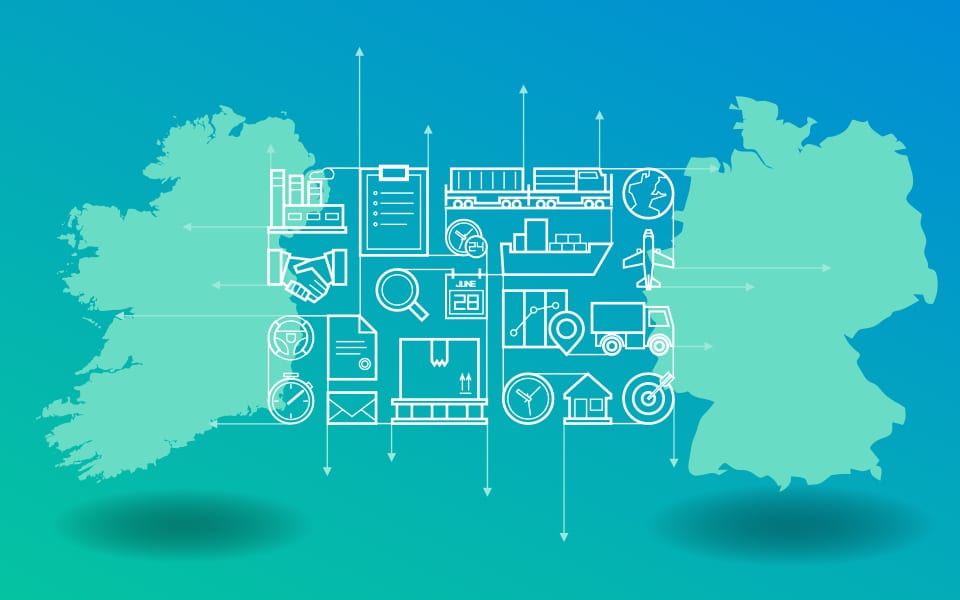As German businesses demand detailed certainty, not just now but long-term, after-sales, support and clear future planning are key to building more than just a foray into the market to deliver a sustained successful expansion for Irish firms.
While the German cultural and business identity centred on convention, conservatism and future-proofing may at first appear quite different from the Irish propensity for dynamism, innovation and can-do delivery, many Irish firms have made successful entries to this biggest market in Europe.
At the Ambition Germany event organised by Enterprise Ireland, Irish firms already active in the market shared why and how they chose Germany, and insights into their success.
Major opportunities and significant challenges in the German market
The opportunities are huge, given the size of the world’s fourth-largest economy but the challenges can also be substantial. It is a mature market with long-established supply chains and a preference for supplier loyalty.
Robert Byrne, director of Burnside Eurocyl, the Carlow-based hydraulic cylinder manufacturer, ventured into Germany in the early 1980s: “A combination of a weak pound and strong Deutsche Mark made our product very competitive so we set up a sales office in Germany. That was vital. You need constant feet on the ground. You simply have to have a presence in the market you intend to sell into.”
German deals must be taken seriously. Negotiations can take a long time and Germans dislike ambiguity.
“This is why, when we sell, we don’t send a sales rep but an engineer. The client can see the solution we are offering – and get the detail clearly explained. They very much appreciate that,” added Byrne.
Since taking advice from Enterprise Ireland on exploring a new market, Paul O’Sullivan, managing director of Irelands Eye Knitwear, said exports now comprise 55% of all sales with Germany being its biggest overseas market.
He told delegates: “We were encouraged to get into Germany by Enterprise Ireland but we found customers very loyal to their supply base. It’s hard to get a meeting but if you do, you’re halfway there. They will do a lot of research on you before agreeing to meet, so to get that point is a very good sign. But if you want to get to the next level you’re going to have have people on the ground, so we needed sales agents in Germany to get to there.”
Cold-calling is frowned upon in Germany and privacy is highly valued – and regulated – so do not squander a meeting or bombard with marketing material. Pat Ward, managing director of Western Automation, electrical safety specialists, said establishing the firm’s credibility and its reputation for long-term delivery was key.
“Establish your credibility to supply them with a solution for their needs. Your credibility is vested in you, not your product, and that comes from your ability to supply as promised, deliver on technical support. When dealing with German firms, be credible, be believable, and always do it in person.”
Initial successes for Burnside Eurocyl came from the firm’s dynamic approach. “We grew because we were fast and flexible and that’s what made us competitive in the German market. But we did make some mistakes. We went for sales before we had capacity and we lost customers because of that. If you give a lead-in time, stick to it.”
Expansion for Western Automation was boosted by attending one of many trade shows – Germany is one the world’s leading venues for trade shows.
Enterprise Ireland can advise on which trade shows are most beneficial for your company to attend. Recently, 34 Irish companies were supported to showcase their solutions at the world-renowned Medica and EuroTier trade fairs, leading events for medtech and agritech respectively. More than 250,000 people attended the events.
“We bit the bullet and did a trade fair in Hannover. It showed we were a company of substance. Before we went to Hannover, we had one German customer. After Hannover, we had 5.
“It’s not a cost, it’s an investment,” said Ward.
For more insights on doing business in Germany visit our German Market Insights pages.



